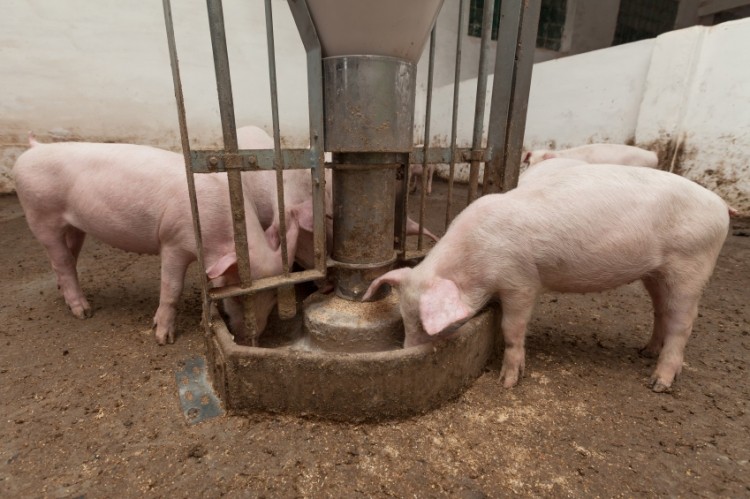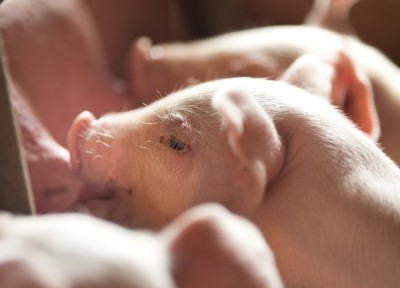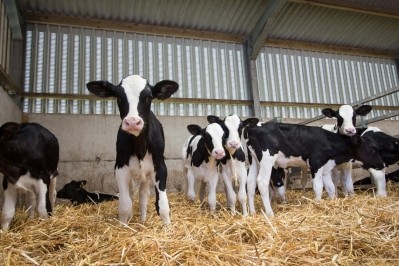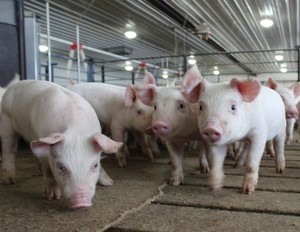Selenium and probiotics combo said to boost productivity of piglets under heat stress

The results indicate the feed additive – a combination of selenium and probiotic strains of L. acidophilus and S. cerevisiae (SeP) – works by improving thyroid function, enhancing anti-oxidative capacity, promoting a healthy gastrointestinal ecosystem and limiting diarrhea occurrences, especially in hot conditions, concluded the researchers.
The scientists, writing in the Journal of Animal Physiology and Animal Nutrition, reported that the SeP supplement, produced by their laboratories, may be efficient as a growth promoter.
“The diarrhea incident rate of the piglets fed the SeP diet was the lowest among the four treatment groups, suggesting that the SeP product may be used as a better antibiotic alternative to control the intestinal disorder of the piglets exposed to heat stress, when comparting to solo probiotics,” said the team.
Why selenium
Heat stress can negatively affect piglet growth and development, and in combination with the challenges associated with weaning, it can produce side effects that include weight loss, lethargy and high morbidity and mortality, said researchers.
“To minimize the harmful effects of weaning and heat stresses on piglet’s health and production performance, probiotics and selenium (Se) have been postulated to be alternatives to antibiotic growth promoters,” said the animal nutrition experts.
They explained that selenium is an essential trace element nutrient that plays an important role in host health maintenance through certain selenoproteins.
Additionally, they said, previous studies on SeP have seen it have a positive influence on the laying rate and egg weight of laying hens while feeding SeP to lambs increased their antioxidant status and enhanced the composition of gut bacterial flora.
How the study was done
The researchers, who work either at Mississippi State University or the College of Veterinary Medicine at Nanjing Agricultural University, studied the effects of four different diets on a group of 48 weanling piglets being raised in warm conditions, between 95 and 104 degrees F, over a period of 42 days.
In addition to a control group fed only a corn soy basal diet, the other groups were given either the basal diet supplemented with probiotics (Pro), or sodium selenite (ISe) or the selenium-enriched probiotic SeP, said the team.
The research looked at several areas of piglet health, including average daily weight gain, diarrhea, blood concentration of selenium, thyroid health and fecal microbial flora.
Blood and fecal samples were taken at intervals from randomly selected members of the piglets receiving the different diets, reported the researchers. Incidents of non-solid fecal matter were recorded. Additionally, the piglets were weighed and both the feed conversion ratio and average daily feed intake were calculated.
The blood samples were then examined for factors including the selenium concentration and the demonstration of thyroid activity, according to the study. Faucal samples were examined for their bacterial content and make-up.
Findings
The results show, said the scientists, the piglets in the group receiving the SeP had a higher average daily gain and body weight than the piglets in any of the other groups.
The initial BW of piglets in the SeP group was 7.79 kg and their final weight was 30.8 kg; and piglets in the control group, which had the lowest final BW, had 7.94 kg BW at the onset and a final weight of 26.7 kg.
Both the piglets getting the probiotic and the selenium-enhanced probiotic showed the most fecal concentration of lactobacillus and the smallest population of E. coli.
“The beneficial effect of (the enhanced probiotic) on the piglets’ production performance could be linked to the enhanced blood anti-oxidative capacity, the enhanced thyroid function and the healthier gastrointestinal ecosystem,” the scientists said. “The robust effect of (the enhanced probiotic) on piglet’s production performance could also be linked to the decreased diarrhea incidence in (that) group when compared to the other three groups.”
Source: Journal of Animal Physiology and Animal Nutrition
Published online ahead of print: DOI: 10.1111/jpn.12326
Title: Effects of dietary supplementation of selenium-enriched probiotics on production performance and intestinal microbiota of weanling piglets raised under high ambient temperature
Authors: C.H Lv, T. Wang, N. Regmi, X. Chen, K. Huang and S. F. Liao.














